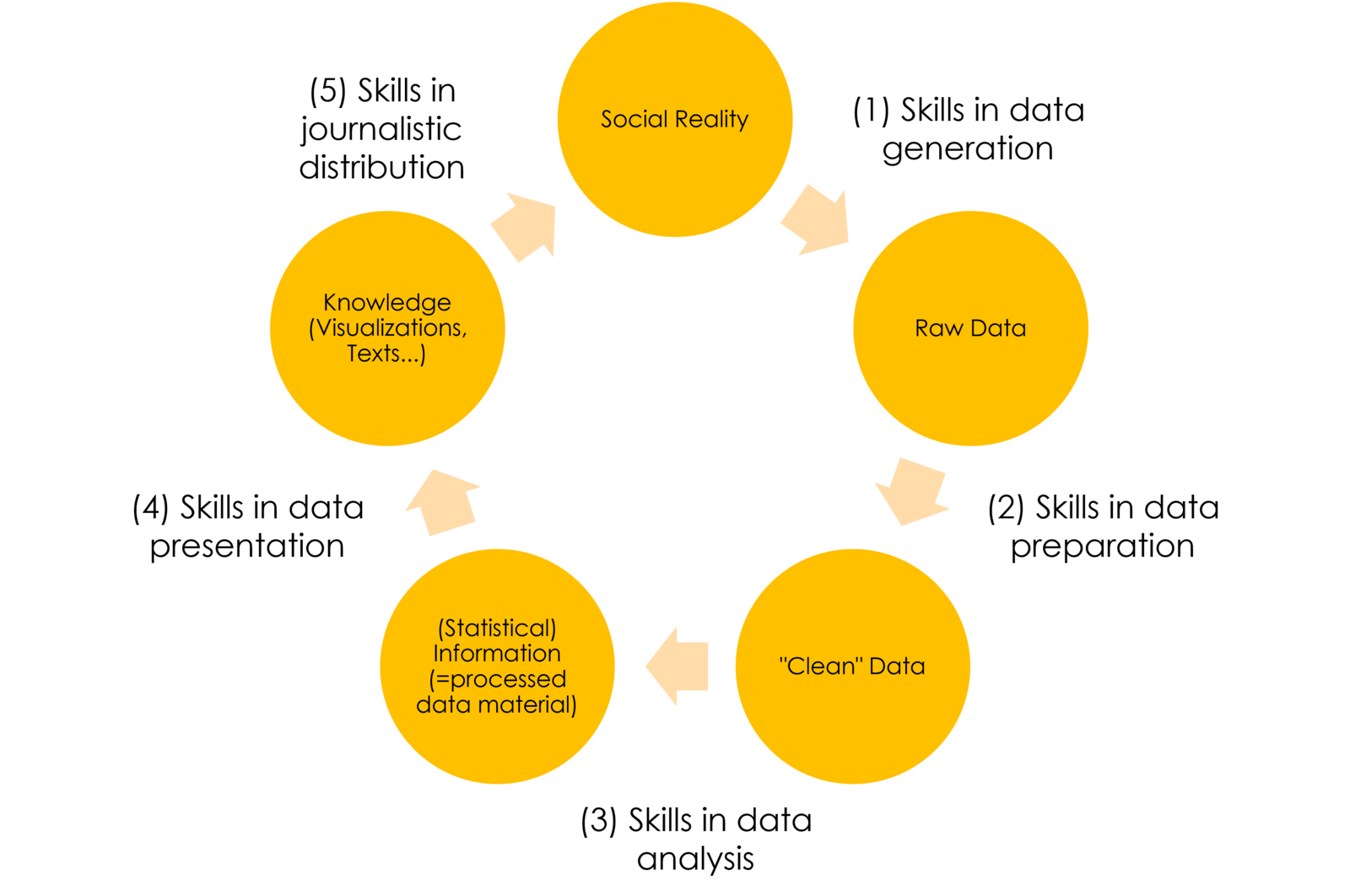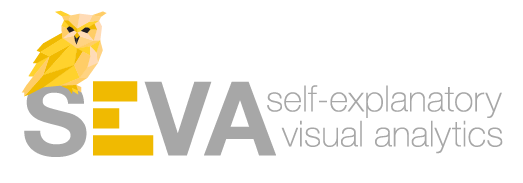Challenges & skills in DDJ
Challenges and required skills in the Data Journalism Domain
In the SEVA project we concentrated on two application scenarios for the development of our proof-of-concept prototypes: data journalism and biomedical research. For the first domain – data journalism – we started our research process with interviews with data journalists (trainers) to analyze their problems when it comes to data analysis and visualizations. Our research led to two papers, presented and published via the STS Conference Graz 2023 „Critical Issues in Science, Technology and Society Studies“ (Mai 8-10th 2023)
“Data Journalism Training – Data & Visualisation Challenges”
Within the last years, an increasing use of data in journalism can be observed which is linked to the general datafication of society and the digital transformation of journalism. Especially during the COVID-19 pandemic, the competencies to successfully process, interpret and evaluate complex data and data visualisations have gained significance. This societal need to address a large-scale pandemic journalistically has led to an increased use of data stories. Despite a growing need for data journalism skills, the field lacks standardized education or a defined skill set. Training programmes are emerging, and this paper focuses specifically on the challenges that arise when such new offerings are created.
We conducted 10 interviews with data journalism trainers in Austria, Germany, and Switzerland (fall 2020 till spring 2021). Results indicate that among trainers working with data is seen as more challenging than designing and interpreting visualisations. Most challenges emerge at the very beginning. For instance, it is demanding for participants to understand and find a story in a data set, or to clean and process data. In addition, visualisations bring about their own challenges: They are often underestimated, as journalists expect quick solutions whereas the reality is much more complex and comprehending.
Overall, we see a great variety of needs and goals within data journalism training, ranging from simple challenges to complex tasks. Those are highly dependent on the usage of certain analytics methods and visualisation types. Therefore, in the training context sensitivity is mandatory to make a relevant contribution to the field.
"Pragmatic data craft: Conceptions of skillful data journalism between journalist values, scientific approaches, and economic boundaries"
While previous research has often focused on workflows, practices and routines in data journalism, this paper investigates how data journalists position themselves in the field. Based on material from ten interviews with data journalists in the German-speaking world, we have identified knowledge forms, ideals and skills that the interviewees consider crucial for becoming a "good" data journalist. Data journalism is often associated with the ideal of a scientific way of doing journalism, with an investigative and emancipatory potential. At the same time, interviewees suggest that the work of data journalists is constrained by the economic pressures of the media industry.
As interview partners indicate, navigating these tensions requires skills: In addition to general journalistic skills, interviewees stress the importance of skills related to the generation and selection of numerical (raw) data based on observations of social reality. In a second step, the data must be prepared and cleansed so that it can be used in statistical operations. Thirdly, interviewees mention the importance of analytical competences in transforming data into processed information. Fourthly, digital skills in presentation, visualisation and design are seen as essential for transforming technical information into knowledge that can be understood by general audiences and journalistically distributed to feed back in conceptions of social reality. Based on this, we have reconstructed an ideal-typical 'cycle model' of data journalism practice, each stage of which requires its own set of skills.

Although individual specialisations emerge, there is a common emphasis among the interviewees on applied technical knowledge: Pragmatic problem-solving competences in computer-assisted manipulation, analysis and presentation of data are at the heart of skilled data journalism. In order to work efficiently in a competitive environment, such capabilities are acquired autodidactically through learning-by-doing processes in a continuous sequence of interactions with digital tools. Onboarding tools and training programs can, in principle, be used at all points of the cycle model to support learning processes. However, points (2) to (4) in particular are associated with special challenges, as the above-mentioned paper shows.
Slides: Data Analytics Onboarding Course
Below you can download the slides to "Data Analytics Onboarding Course". They contain more information about the topic.
